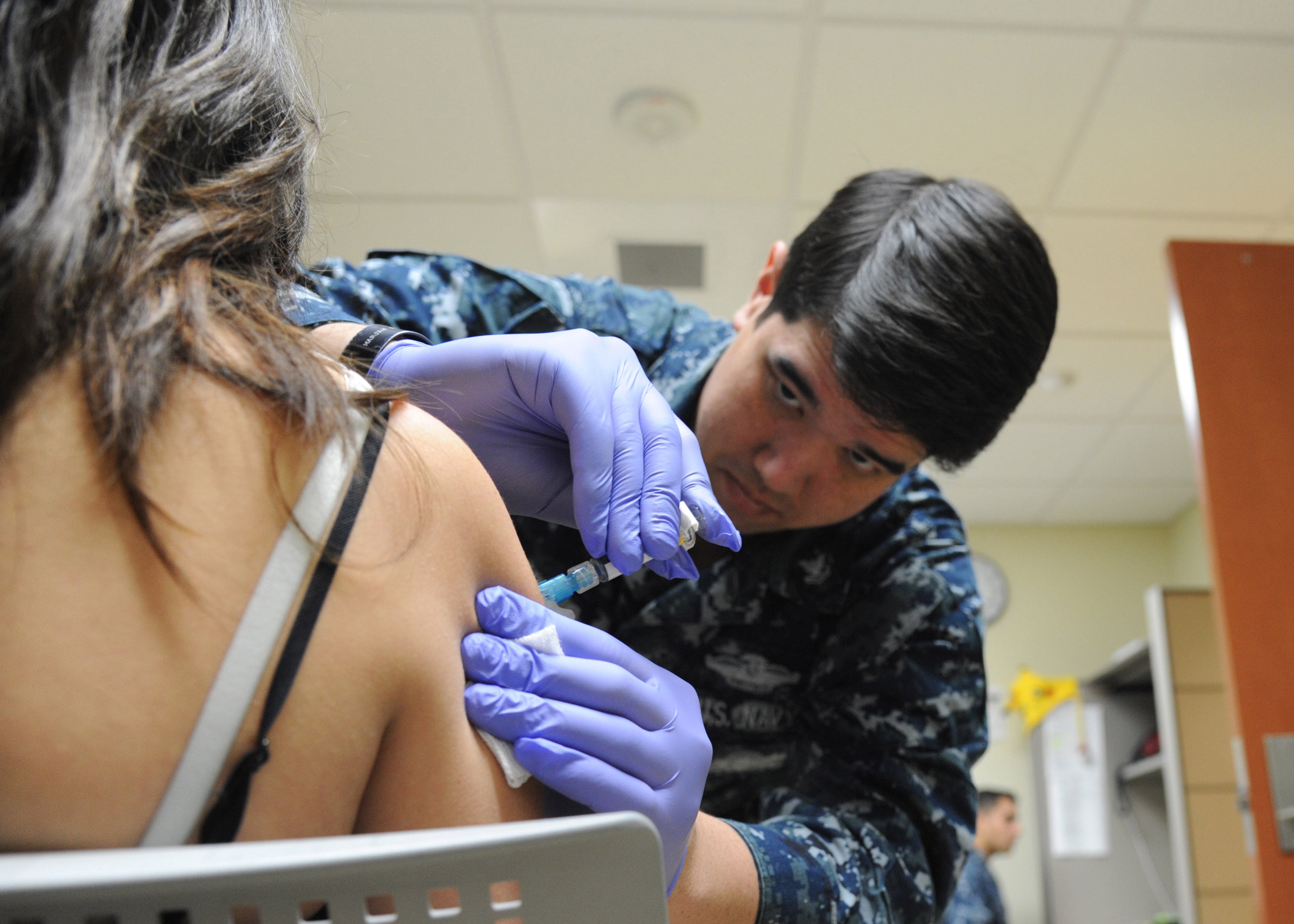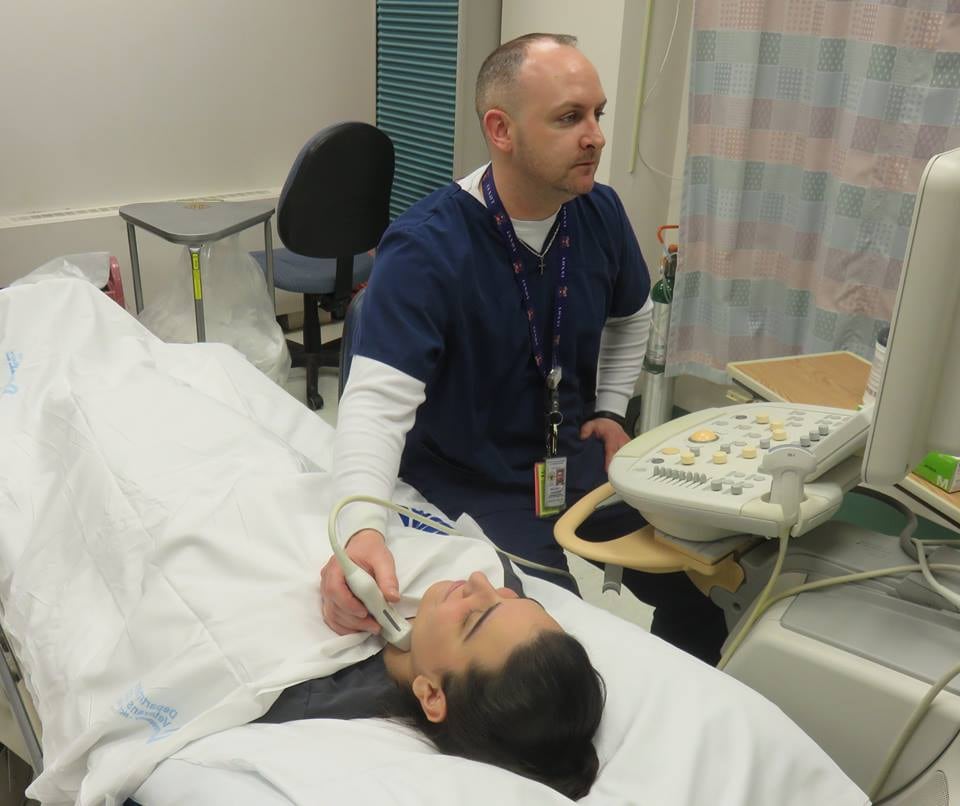A senior Army National Guard officer charged with knowingly exposing a woman to HIV by having unprotected sex now waits to learn if he will face a court-martial.
Col. Jeffrey Pounding is charged with assault, adultery and conduct unbecoming an officer. If he is tried and convicted, Pounding could receive a maximum sentence of 15 years confinement, dismissal from the service, and total forfeiture of all pays and allowances.
The Article 32 hearing to determine if Pounding should face a court-martial wrapped up Tuesday at Fort McNair in Washington, D.C.
The investigating officer, Lt. Col. Steven Bryant, now has until Nov. 25 to review the evidence and make a recommendation to Col. Michael Henderson, commander of Joint Base Myer-Henderson Hall, Virginia.
Related: Update: Colonel's alleged lover testifies at Article 32
Henderson, the special courts-martial convening authority, can dismiss the charges or recommend it move forward to Maj. Gen. Jeffrey Buchanan for a decision.
Buchanan, the commanding general of the Military District of Washington, is the general courts-martial convening authority.
Pounding and his civilian defense attorney, Jim Gordon, declined an interview request from Army Times because of the ongoing investigation.
The Article 32 in Pounding's case began Monday.
Pounding, a Special Forces officer who is assigned as the deputy director of the National Guard Bureau's strategic plans and policy directorate (J-5), faces one charge each of assault, adultery and conduct unbecoming an officer.
The woman who is accusing Pounding of exposing her to HIV said their relationship began when they were both at Texas A&M University. He was an Army fellow there, she said.
As policy, Army Times does not name alleged victims of assault of a sexual nature.
The two met for drinks, and their relationship quickly turned physical, she said.
"We'd see each other a few times a week, and we'd end up spending the night," she said from the witness stand.
She even planned a surprise birthday party for Pounding, and the two took a romantic overnight trip, the woman said.
The pair continued their relationship for more than two years, even after Pounding completed his fellowship at the university and moved away from Texas, the woman said.
She also said she met Pounding in the Washington, D.C., area and near Fort Bragg, North Carolina, when he was on work trips.
The woman testified they did not use protection when they had sex, and he did not disclose his HIV status to her.
"I felt Jeff was a stand-up guy," she said. "I thought surely if there was something wrong he'd tell me."
The woman said she was "devastated" when she received a call from a public health official informing her that she'd been exposed to HIV.
"[I was] sick to my stomach," she said on the witness stand. "I didn't know what to think. I thought I was going to die."
When asked if she would have had sex with Pounding if she knew his HIV status, the woman said: "Absolutely not."
During her testimony, the woman said she had since been tested twice and is negative for HIV.
As Pounding's wife sat in the courtroom, his alleged lover outlined her relationship with Pounding.
She remained on the stand for more than five hours as Gordon, the defense attorney, grilled her on her testimony, work history and personal life in an effort to determine her credibility.
The hearing was contentious at times, as Gordon and Bryant sparred over Gordon's line of questioning.
Also testifying during the Article 32 were Army Criminal Investigation Command Special Agent Lee Thao, who was the lead investigating officer in the case, and Dr. (Lt. Col.) Joshua Hartzell, who said he has treated Pounding for HIV since 2007.
Pounding, who has been assigned to the Guard Bureau since early 2004, is accused of having unprotected sex with a woman who is not his wife during three different time periods, according to the charge sheet against him.
According to the charges, Pounding exposed his partner to the HIV virus, "a means likely to produce death or grievous bodily harm," through unprotected sex between Nov. 1, 2009, and May 31, 2010, in Bryan, Texas.
Charges cite another exposure between Dec. 6-9, 2010, in Arlington, Virginia. A third incident is alleged to have occurred Sept. 6-9, 2011, in Southern Pines, North Carolina, according to the charge sheet.
Pounding knew he had the Human Immunodeficiency Virus but did not disclose that fact to his partner, according to the charge sheet.
According to Army Regulation 600-110, soldiers infected with HIV are to receive a medical follow-up and evaluation every six months and as directed by an infectious disease physician.
Infected soldiers who don't show "progressive clinical illness or immunological deficiency during periodic evaluations will not be involuntarily separated solely because they are HIV infected," according to the regulation, which covers the identification, surveillance and administration of personnel with HIV.
These soldiers will be limited to duty within the United States, according to the regulation.
Michelle Tan is the editor of Army Times and Air Force Times. She has covered the military for Military Times since 2005, and has embedded with U.S. troops in Iraq, Afghanistan, Kuwait, Haiti, Gabon and the Horn of Africa.





